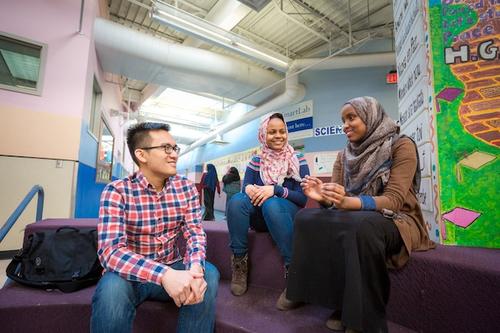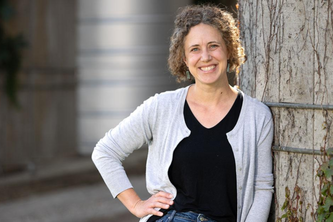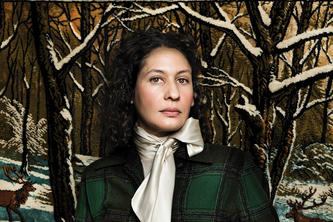
When high school freshmen Sabrina Ali and Ramla Mohamud needed mentoring along the path to college and eventually medical school, they found it in U of M medical student Huy Donguyen. He helped the teenagers in practical areas like applying for scholarships and selecting the best classes to prepare themselves for college.
Ali and Mohamud, whose families are from Somalia, belong to the first group of teenagers to be paired with University medical students through the Twin Cities chapter of the Student National Medical Association’s High School Mentoring Program.
The program expands the pipeline of minority medical students to earlier ages by encouraging them to study STEM subjects that could spark their interest in medicine. The idea came from Nathan Wanderman, M.D., then a U of M medical student, who saw the benefits of mentoring as an AmeriCorps teacher.
Mentoring by people close to their own age helps high school students gain more. “The peer-to-peer connections they make are very important. They understand each other better, and they can talk about their shared experiences,” says Bill Wilson, founder of St. Paul’s Higher Ground Academy, from which Ali and Mohamud just graduated. “It’s more relevant, and the connections are very powerful.”
“I was a beneficiary of the U’s pipeline organization that helps minorities in Minnesota get to medical school,” says Donguyen, who is Vietnamese-American. “Without all of that assistance and guidance … I don’t know if I would be here today.”
- Categories:
- Health





